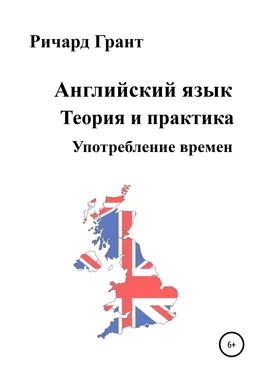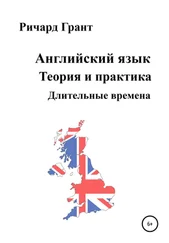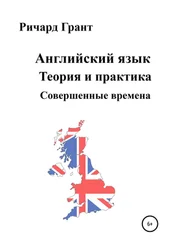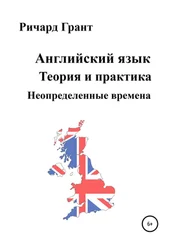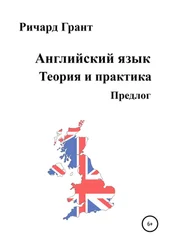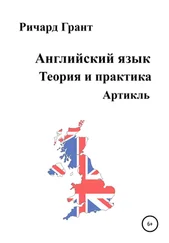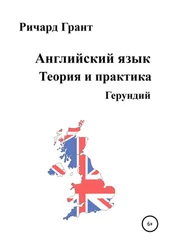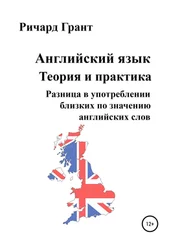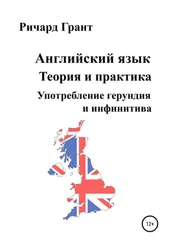) now. 4. I (
to have) no time now, I (
to have) dinner. 5. It (
to take) me forty minutes to get to school. 6. I (
to call) my son in Chicago now. I (
to want) to call him every month but it (
to be) very expensive. 7. We (
to drink) tea now. We (
to drink) tea every morning. 8. The children (
to eat) soup now. 9. He (
to sleep) now? 10. Look! The baby (
to sleep). 11. The children (
to play) in the yard every day. 12. Your family (
to leave) Toronto in summer? – Yes, we always (
to go) to the seaside. We all (
to like) the sea. Mother (
to stay) with us till the end of August, but father (
to return) much earlier. 13. Hello, Pete, where you (
to go)? – I (
to hurry) to school. 14. You (
to hear) me now? How your job (
to go)? – Great! I (
to enjoy) it a lot. The only problem I (
to have) here (
to be) that the food (
to be) so good. I (
to eat) too much! I (
to get) really fat.
Упражнение 5
Раскройте скобки, употребляя глаголы в Present Continuous или в Present Simple.
1. They ( to go) to school now. They ( to go) to school every morning. 2. The children ( to eat) soup now? 3. We ( not to go) to the country in winter. 4. The baby always ( to sleep) after dinner. 5. They ( not to go) to the stadium on Monday. 6. Where Tom and Nick ( to be) now? – They ( to have) a nice walk in the garden. 7. When your lessons ( to begin) on Monday? – They ( to begin) at nine o’clock. 8. Ruth ( to learn) English now because she ( to like) learning languages and she ( to want) to impress everybody. 9. I ( not to sleep) now. I ( not to sleep) in the daytime. 10. The children ( not to eat) soup now. 11. My sister ( to eat) sweets every day. 12. My grandmother ( not to work). She is on pension. 13. She ( to read) in the evening. 14. What you ( to do) here now? – We ( to listen) to tape recordings.
Упражнение 6
Раскройте скобки , употребляя глаголы в Present Continuous или в Present Simple.
1. Where your sister ( to be)? – She ( to do) her homework in the next room. 2. Listen to that man! You ( to understand) what language he ( to speak)? 3. She ( not to drink) coffee now. She ( not to drink) coffee after lunch. 4. You ( to play) volleyball well? 5. She ( not to eat) sweets now. 6. My father ( not to sleep) now. He ( to work) in the garden. 7. She ( not to read) in the morning. 8. You ( to want) to see my father? – Yes, I …. 9. It usually ( to take) me an hour to do my written exercises. 10. Your English ( to get) better? – Yes, I ( to think) so. 11. We ( not to watch) TV now. We ( not to watch) TV in the morning. 12. When you ( to play) volleyball? 13. They ( to do) their homework in the afternoon. 14. I usually ( to get) up at seven o’clock in the morning.
Упражнение 7
Раскройте скобки, употребляя глаголы в Present Continuous или в Present Simple.
1. She ( not to read) now. 2. Michael ( to know) German rather well. He ( to want) to know English, too, but he ( to have) little time for it now. 3. Where Boris ( to be)? I ( to look) for him. – He ( to have) dinner. 4. We ( to know) he never ( to take) risks. 5. They ( not to eat) now. They ( not to eat) at the lesson. 6. What Nick ( to do) in the evening? 7. They ( not to go) for a walk in the evening. 8. What your sister ( to do) now? – She ( to wash) her face and hands. 9. I ( to write) an essay now. 10. What magazine you ( to read)? – It ( to be) a French magazine. There ( to be) good articles on sports here. You ( to be) interested in sports? – Yes, I …. But I ( not to know) French. 11. I ( to look) for a cassette recorder. You ( to have) anything on sale? – Take a look at this little Sonic Walkman. – No, I ( not to want) this kind. – Well, this Supersound might interest you. It ( to be) a good size, it ( to be) stereo and it ( to have) a radio to listen to the news. 12. They ( to think) he ( to learn) fast, he ( to know) English well and he ( to speak) English fluently. 13. My mother ( not to work) now. My mother ( not to work) at an office. 14. He ( to go) to the cinema in the evening?
Упражнение 8
Раскройте скобки, употребляя глаголы в Present Continuous или в Present Simple.
1. My father ( not to work) on Sunday. 2. When you usually (to come) home from school? – I ( to come) at three o’clock. 3. I ( not to drink) milk now. 4. We ( to have) an English lesson now. 5. I ( not to know) about you, but I ( to go) out to the cinema. 6. Don’t disturb him. He just ( to work) at his English. 7. You ( to work) now? You ( to work) every day? 8. We ( not to dance) every day. 9. He ( to work) every day. 10. Where your cousin ( to work)? – He ( to work) at a hospital. 11. I ( to go) for a walk after dinner. 12. He ( to feel) in a position to lend her money. 13. I ( not to like) to watch TV very often. But at the moment I ( to enjoy) my favourite film Gone with the Wind . And I ( to be) very happy. 14. He ( to play) now? He ( to play) in the afternoon?
Упражнение 9
Раскройте скобки , употребляя глаголы в Present Continuous или в Present Simple.
1. Look! Kate ( to dance). 2. I ( to read) books in the evening. 3. Your sister ( to study) at college? – No, she ( to go) to school. 4. I ( not to go) to the theatre every Sunday. 5. I ( to think) she ( not to feel) safe there. 6. You ( to have) any idea where Rick ( to be)? I ( not to see) him at work now. – He ( to visit) his friends in Spain. 7. They ( to eat) now? They ( to eat) at school? 8. Kate ( to sing) well? 9. I ( not to read) books in the morning. 10. My cousin ( to go) to school every day. 11. He ( not to work) now. 12. You ( to see) what I ( to mean)? 13. Hurry up! We ( not to have) much time left. – I ( to come)! 14. Your sister ( to rest) now? Your sister ( to rest) after school?
Читать дальше
